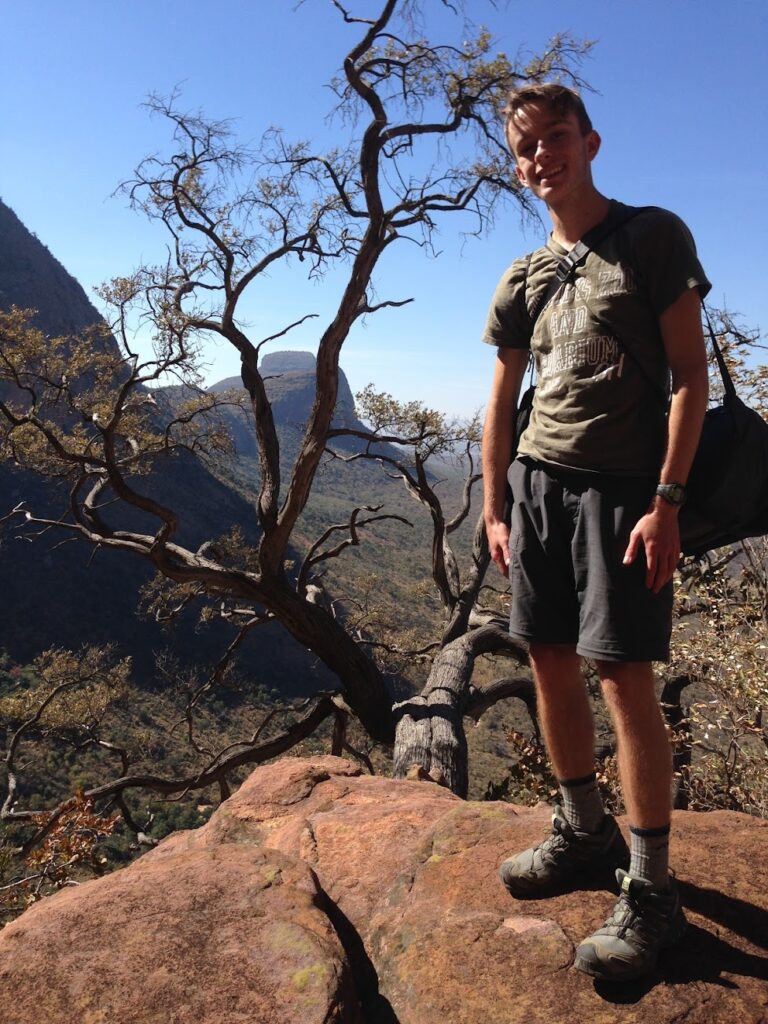Michelle Neal
July 18th, 2015
Day 17
The following blog post is created by a Hopkinton/Bow High School student from New Hampshire, who is on program with Original Wisdom, partnering with Nature Guide Training, on a 3-week South African Ecology & Culture program at Djuma Game reserve in the Sabi Sands region of the Greater Kruger Area (July 2015). In addition to exposure to ecology and culture, we have sponsored a local South African student on scholarship for the entire program (see Blog 3# Interview with Mhlavasi) and will attend 2 days at Mhlavasi’s school, Acorns to Oaks, where our students interact with the local students and help to teach them some basic skills in spatial thinking and use of Geographic Information Systems (GIS) to create online maps and stories with a spatial component. Our overall goals include facilitating connections with self, others, and the natural world.
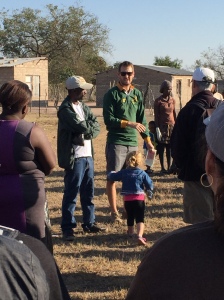
It’s Mandela Day in South Africa! To celebrate, we are granting Mr. Mandela his last wish: a minimum of 67 minutes of community service. We found ourselves at Hananani Primary School in Dixie among a large gathering of children, adolescents, and adults. They invited us to help clean up litter around the school ground. The truly wonderful thing about this event was that one of the Nature Guide Training groups had done it the previously, in 2014, and now, the community had approached us to carry on the tradition and help them do it again.
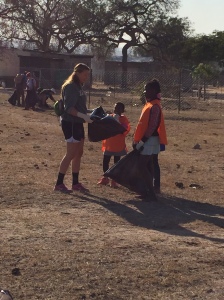
For about two hours, the gathering of joyful volunteers roamed the field collecting plastic, glass, paper, metals, and miscellaneous trash in separate bags. The African children giddily followed us American teenagers and helped spot the litter. The hot sun shone upon our working shoulders. Our laughter and chatter could be heard for far distances, catching the attention of more and more intrigued and wide-eyed locals. When we had done our best job, the villagers exchanged their gloves for a Coke and some chips. Mounds of trash bags were piled together like a trophy for our hard work. 52 bags and unbagged piles of scrap metal awaited a truck, coming to remove them.
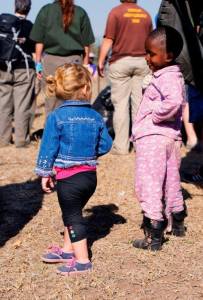
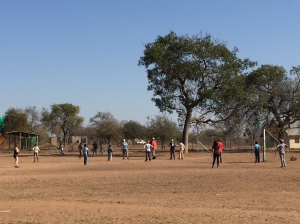
From there, the energized children from both halves of the world gathered around for a soccer (or football as they call it in Africa) game. They ran; they kicked; they dodged; and they laughed. It was a euphoric scene to participate in or even just to watch from the sidelines. About seven young girls and boys between ages 3 and 10 years joined me in the Djuma vehicle, poking at my clothes, smiling from ear to ear, and constantly whispering the one English word that they knew best: “Yes!” It stunned us all to see the pure excitement and curiosity that the locals had for the American visitors. They always give us a wave as we drive by, and look utterly overjoyed when we return the gesture.
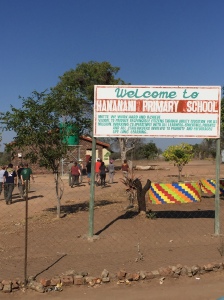
Afterwards, we briefly toured the local school. It has an estimated two hundred students. This came as a harsh surprise to us all as we viewed its small classrooms and minimal resources. Mhlavasi, our guest from Acorns to Oaks, said, “It was a bit sad to see such a small school. I think there was only one room for grades five and six, and it is not ideal to learn in such a small space and it is hard to teach two classes in one room.” It is difficult to imagine how the students’ education is affected by the conditions of the school – yet, as people they are so happy.
On the journey back to camp, we stopped at two convenience stores (the first was fresh out of cold drinks) and a curios shop where we practiced our bartering skills. The group as a whole gained a stronger appreciation for equality in South Africa and the differences made by Nelson Mandela. We have been culture shocked like never before and have developed a new level of gratitude for what we do have at home. Happy Mandela Day!
Edited by Kersey Lawrence

